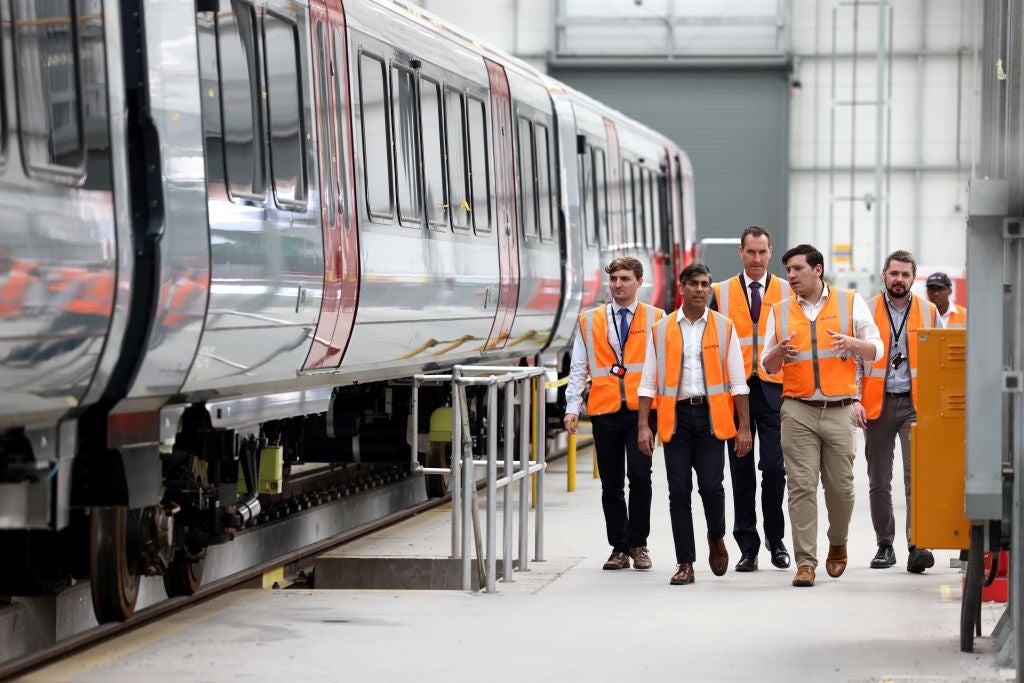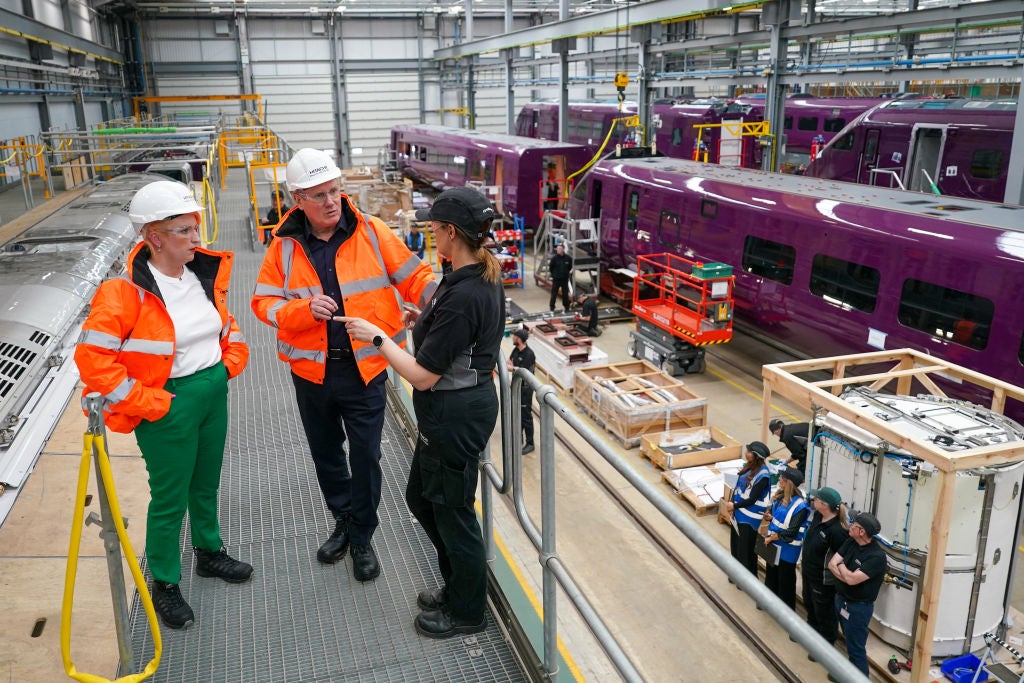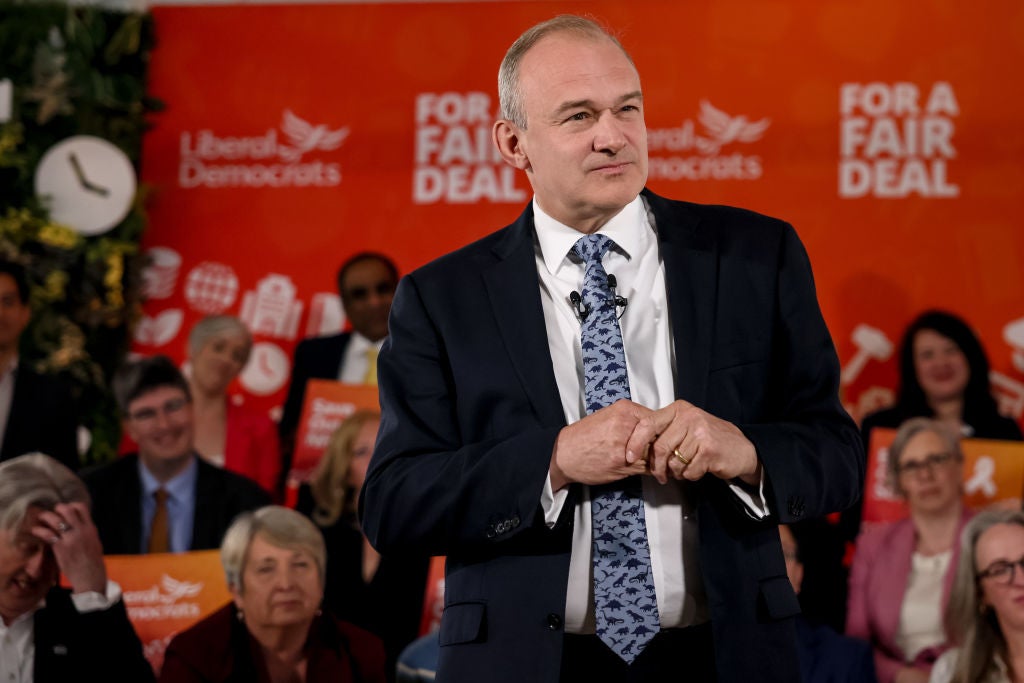
The UK will be going to the polls on 4 July, after Prime Minister Rishi Sunak called a general election on 22 May in a surprise move. Transport, particularly the rail sector, has been a hot topic in UK politics over recent years, with strikes a long-term issue, poor service becoming more commonplace, modernisation plans facing backlash and most importantly, Sunak’s decision to cancel and delay further parts of the HS2 project.
Both major party manifestos make promises to reform the country’s railways, though through differing means, and the tertiary political parties campaigning in the election also make some bold pledges.
“It is good to see rail featuring strongly within the political party election manifesto plans. This prominence reflects the importance of UK rail to delivering improvements in economic and productivity growth, to which all parties say they are committed,” said Railway Industry Association (RIA) CEO Darren Caplan following the release of all party manifestos.
“It is encouraging to see near agreement from the parties on the urgent need for rail reform and a recognition that a long-term pipeline can give certainty to rail suppliers. We also welcome any plans that can improve the oversight and management of major projects.
“We and our members now look forward to working with the new government on building an even better railway for customers – both passengers and freight – and one which also delivers value-for-money, world-class, track and train for the taxpayer in future too.”
The Conservative Party
During their manifesto launch, the Conservative Party – which has been in government since 2010 – promised to introduce the Rail Reform Bill previously announced in February 2024, creating the new state-owned public body Great British Railways (GBR) to oversee rail transport in the country.
The only notable new promise from the Conservatives is the commitment to “complete HS2 between London Euston and the West Midlands”, meaning the line will eventually terminate at the London Euston Station as opposed to Old Oak Common, as has been debated.
The bulk of rail pledges in the Tory manifesto are centred around the Network North projects previously announced following the cancellation of the northern leg of HS2. Despite the name, these projects are not limited to railways, or the north of the country.
As such, there isn’t much in the manifesto that hasn’t already been announced. There’s the existing £1.75bn investment in a Midlands Rail Hub (announced in February 2024), £1bn to electrify the North Wales Main Line (announced in December 2023), and a broad pledge to “improve accessibility” at 100 stations as part of the Access for All programme (which has been in place since 2006), 50 of which were already confirmed in May 2024.

The manifesto restates a commitment to deliver Northern Powerhouse Rail (NPR), which is something of a surprise considering the Integrated Rail Plan essentially curtailed the eastern leg of the proposed project and the current Conservative Government has axed the northern leg of HS2.
The manifesto promises to “deliver upgrades to railways in the South West”, including the line through Dawlish, the Energy Coast Line in Cumbria and the Ely Junction scheme in East Anglia, although any specific information on how is missing. It also states a commitment to the reopening of the Beeching cuts, including the Don Valley line between Sheffield and Stocksbridge, the Ivanhoe Line between Loughborough and Leicester, and the Stoke–Leek lines.
Surprisingly, the manifesto does specifically pledge £5m for “the evaluation of proposals to extend the current Borders Railway from Tweedbank through Hawick and on to Carlisle”. Alongside a vague reassessment of the East Coast Main Line timetable, these are the only pledges for the Scottish Railways.
The Conservatives also vow to roll out mobile, pay-as-you-go contactless ticketing across the entire country over the next parliamentary period, although no details on how this will happen are included.
The Conservatives maintain they will support growth in the rail freight sector, but the pledge to grow it by 75% by 2040 – which was announced in December 2023 – is not included in the manifesto.
The Labour Party
The Labour Party promises to “overhaul Britain’s railways”. Despite this, there is little to no mention of rail in the manifesto – the words ‘rail’ and ‘railway’ feature just five times in the 136-page document. What is promised, much like the Conservative offering, is a recommitment to what has already been announced – the party’s rail plan was previously announced in April 2024.
Labour says they will develop a ten-year infrastructure strategy, which will include “improving rail connectivity across the north of England” – although, unlike the Conservatives, they do not mention any associated costs. A broad pledge, especially considering the April announcements didn’t include any mention of NPR.
The Labour Party also recommits to gradually bringing railways into public ownership as existing Train Operating Companies’ (TOCs) contracts expire, also committing to the creation of GBR to deliver rail operations in the country.

Unlike the Conservatives, the Labour manifesto does specifically mention the importance of collaborating with local authorities on transport projects, stating: “Mayors will have a role in designing the services in their areas”, and that they will give mayors the power to create unified and integrated transport systems.
The manifesto also pledges to promote and grow rail freight and highlights the importance of open-access operators in the rail sector, although does not offer any more specific information on the topics, which were key points in the April 2024 pledges.
Digital ticketing and ticketing reform were a key focus in the party’s rail plan announced in April, but there is no information in the 2024 manifesto of Labour’s plan on how it will implement the change. Similarly, there is no mention of improving industrial relations in the manifesto (another key point from the April plan).
There is no mention of HS2 or high-speed rail at all in Labour’s 2024 manifesto, nor of any plans to electrify the rail network.
The Liberal Democrats
The headline from the Liberal Democrats’ manifesto when it comes to rail is probably the vow to reassess the cancellation of the northern leg of HS2. The Lib Dems are the only opposition party to make such a promise in their manifesto and say they will reassess the project, including looking at private investment, or if an alternative project is viable. They also commit to delivering NPR.
Similar to Labour, the Lib Dems commit to devolving more decision-making to local authorities in England to design public transport infrastructure around community needs, citing the Transport for London model. They also vow to work with local authorities to create light rail schemes where applicable.

Though not naming GBR, the Lib Dem manifesto does promise to “urgently establish a new Railway Agency” to reform UK railways. They also promise to create a ten-year plan to “significantly extend the electrification of Britain’s rail network”, although any further details of how are missing from the manifesto. They do promise to ensure all new rail lines are electrified as standard.
The manifesto promises a new national freight strategy, which will prioritise rail freight over road, through the electrification of freight routes. It also highlights the importance of permitting open-access operators to use the Channel Tunnel and HS1 route.
For passengers, the manifesto promises to freeze rail fares and simplify ticketing across public transport, as well as a pledge to “explore” the possibility of an annual pass across the whole rail network. The Lib Dem manifesto also recommits to the Access for All programme to improve accessibility at stations, though no further information is included.
The Green Party
The 2024 Green Party manifesto is the first not to include a stance of stopping HS2 since at least as far back as 2015. This is somewhat unsurprising given that Sunak has all but cancelled anything beyond Phase 1 of the project, but also could point to a cooling of the infighting over rail projects within the party. With this in mind, it’s no surprise that the manifesto doesn’t mention HS2 at all, nor high-speed rail.
The core promise in the party’s manifesto is for a publicly owned railway, under a similar plan as Labour, by gradually bringing routes under public control as TOC contracts expire.
The Greens go one step further than Labour, by addressing ROSCOs, stating in their manifesto that: “Rolling stock which is currently owned by leasing companies needs replacement.”

Unsurprisingly, the Green party manifesto includes £30bn investment in railway electrification, with the party in favour of “more rapid electrification” so that the UK rail network “can be powered sustainably”.
For passengers, the party pledges “more affordable fares”, and for a national strategy to identify any lines or stations that could be reopened, although more in-depth detail is missing.
The Green manifesto pledges “more support” for a transition from road freight to rail, although doesn’t offer any firm policies on the matter.




